Meteorites:The rocks that just flew in!
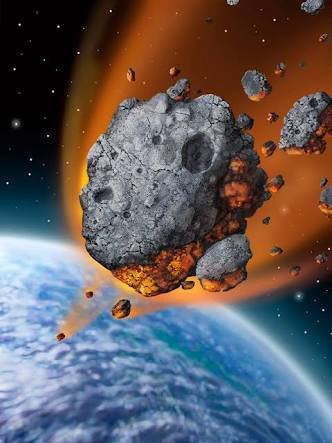.jpeg)
Many people have been to the desert, or watercourse or even perhaps their own backyard and located a rock that uncommon, some of those rocks are thought to be METEORITES.
What are Meteorites?
Meteorites are items of rock or metal that fall to the earth from space. Meteorites land haphazardly everywhere on earth, they are the last stage in the existence of these sort of space rocks, before they were meteorites the rocks were meteors before they were meteors, they were meteoroids. Meteoroids are lumps of rock or metal that orbit the sun, these meteoroids become meteors after they crash into earth’s atmosphere and therefore the gases surrounding them shortly illuminate as “shooting stars", while most meteors burn up and disintegrate within the atmosphere, several of those space rocks reach earth’s surface in the form of meteorites, these meteors mustn't be confused with a meteor shower. Meteor showers and meteor storms happen when several meteors are visible at once, and meteorites are the rock remnants that stay after a meteor has burned up and come into contact with the planet's surface.
Most meteorites look very much like rocks found on Earth, except meteorites typically have a dark, burned exterior, this exterior formed as a result of friction from the atmosphere melts the meteor as it crashes toward earth, known as thermal
ablation, this process can also give meteorites a roughened, smooth, or thumbprint surface, thermal ablation creates these completely different textures attributable to different chemicals present within the meteorite.
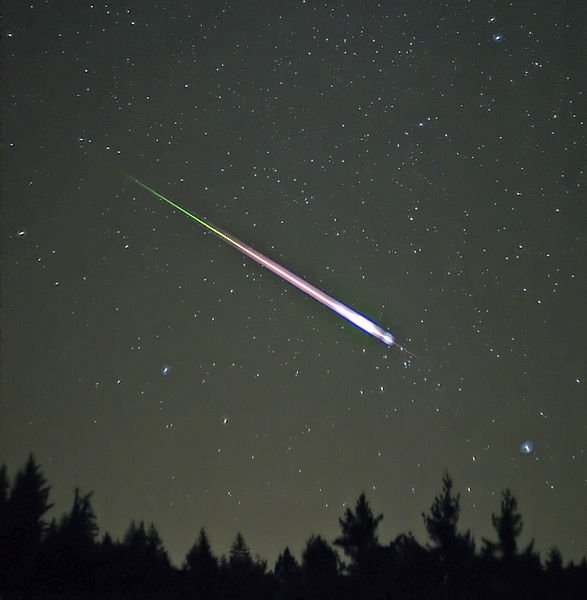
Meteorites crash through the atmospheres of all planets and moons in our solar system, some planets and moons don't have enough atmosphere to break apart meteors, resulting in large meteorites. These larger meteorites create deep, spherical impact craters that can be found all over our Moon, Mercury, and Mars. In 2005, the first meteorite found on another planet was discovered by Opportunity, one of NASA’s Mars rover artificial satellite, in 2014, Opportunity ’s sister
spacecraft, Curiosity, discovered a meteorite that was 2 meters (7 feet) wide, creating it the largest yet discovered on planet Mars.
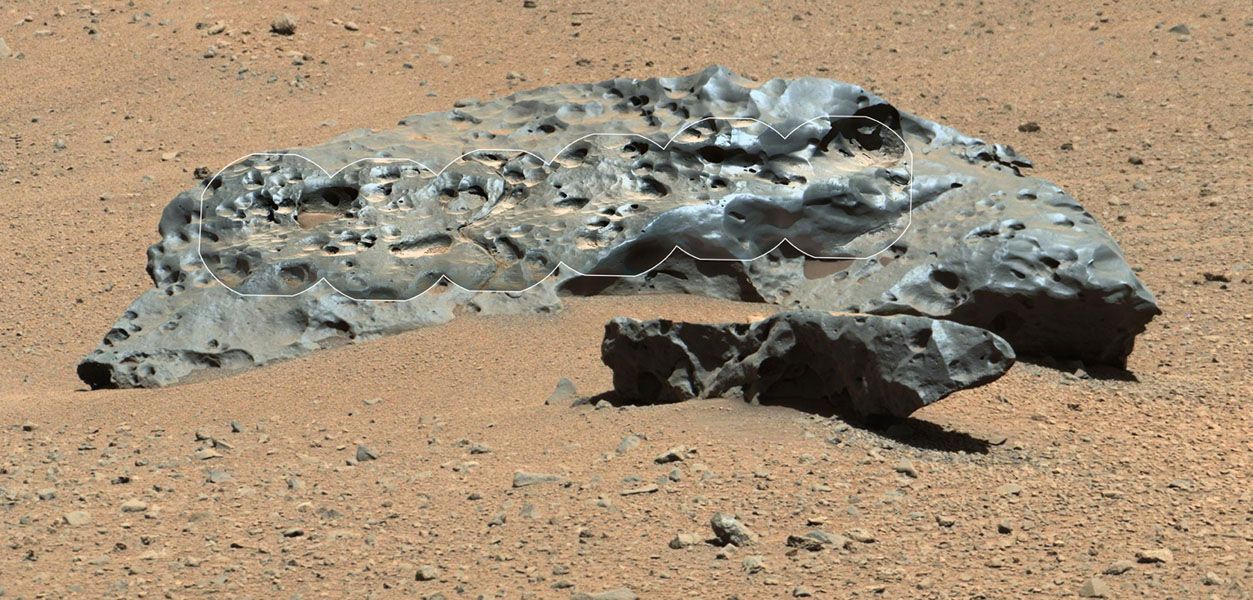
Characteristics of meteorite
Attraction to magnets
Almost all Meteorite are usually attracted to a magnet, as a result of the high iron and nickel content. Make sure you make use of a refrigerator magnet to see if the Meteorite will be attracted to the magnet.
Density
Meteorites tend to feel heavier than most earth rock of the same size. The high iron and nickel content makes the Meteorite heavier while terrestrial rocks like magnetite most often do not contain nickel as Meteorite.
Presence Of Fusion Crust
The fusion Crust makes the surface of a freshly fallen Meteorite appear black and shiny and the longer the meteorite stays on earth the fusion Crust wears away leaving the Meteorite rusty brown.
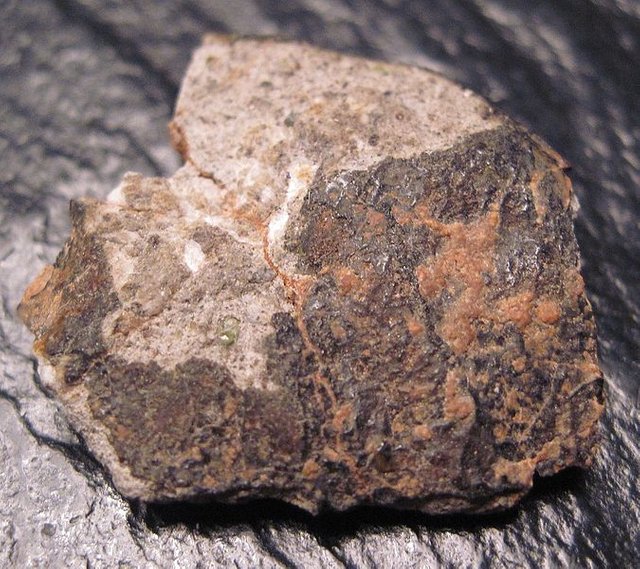
Presence Of Metallic Flakes
Nearly all stone Meteorite contain tiny, bright metallic flakes. They are tiny pieces of extraterrestrial iron and nickel. They are usually seen after slicing off a small piece or removing a corner with a bench grinder.
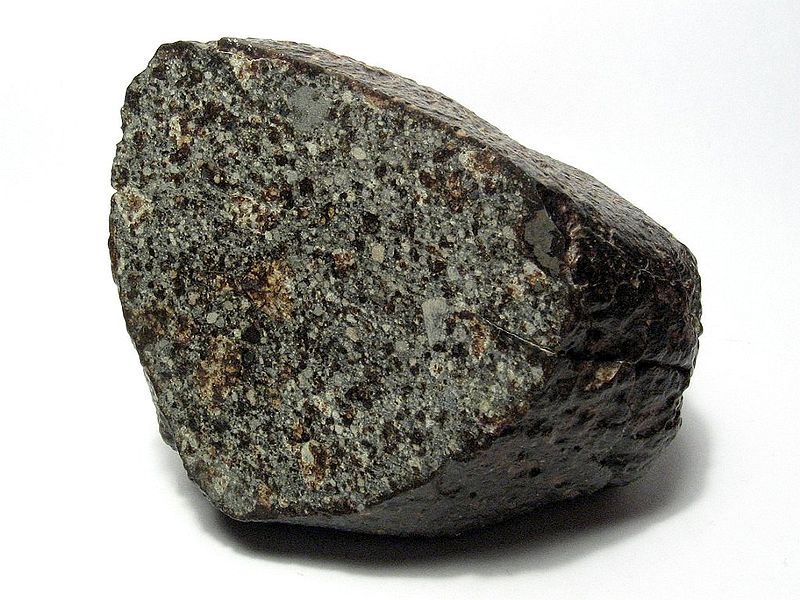
The 3 Main types of Meteorites
Although there are a large number of subcategories, meteorites are divided generally into 3main groups:
- Iron Meteorites
- Stony Meteorites
- Stony-irons Meteorites
Almost all meteorites contain extraterrestrial nickel and iron, and those that contain no iron in any respect are so rare that when asked for help and advice on identifying possible space rocks, we tend to typically discount anything that doesn't contain significant amounts of metal.
IRON METEORITES
Iron meteorites are composed mostly of iron and also contain tiny amounts of nickel and cobalt. Iron meteorites are very heavy and are collected more frequently than alternative kinds of meteorites. Iron meteorites are said to be once a part of the core of a long-vanished planet or massive asteroid and are believed to have originated within the belt between Mars and Jupiter, they are among the densest materials on earth and will stick very powerfully to a strong magnet, iron meteorites are far heavier than most earth rocks-if you have ever upraised up a cannonball or a slab of iron or steel, you will get the thought.
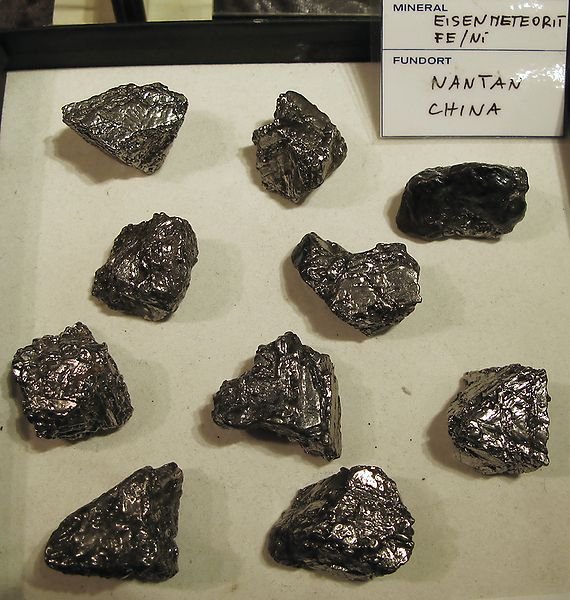
STONY METEORITES
Stony meteorites generally referred to as stone meteorites, fall to earth a lot more frequently than other types of meteorites, the largest cluster of meteorites is the stones, and that they once formed a part of the outer crust of a planet or asteroid, several stones meteorites, particularly those that are on the surface of our planet for an extended period of time frequently look very similar to terrestrial rocks, it will take a skilled eye to identify them when meteorite hunting in the field. Some stone meteorites contain tiny, colorful, grain-like inclusions called chondrules.
These small grains originated within the solar nebula, and therefore pre-date the formation of our planet and therefore the rest of the solar system, making them the oldest known matter available to us for study, stone meteorites that contain these chondrules are called chondrites space rocks without chondrites are known as achondrites. Chondrites themselves are classified into 2 major groups: ordinary and carbonaceous, standard chondrites are the most common type of stony meteorite, accounting for 86 percent of all meteorites that have fallen to Earth, they're named for the hardened droplets ofllava, called
chondrules, embedded in them.

Chondrites formed from the dust and small particles that came together to form asteroids in the early solar system, more than 4.5 billion years ago, because they were formed at the same time as the solar system, chondrites are integral to the study of the solar system’s origin, age, and composition. Achondrites don't contain the lava droplets (chondrules) present in chondrites, they are very rare, making up about 3 percent of all known meteorites, Achondrites are formed from the brittle outer layer of an asteroid, that is similar to Earth’s crust.
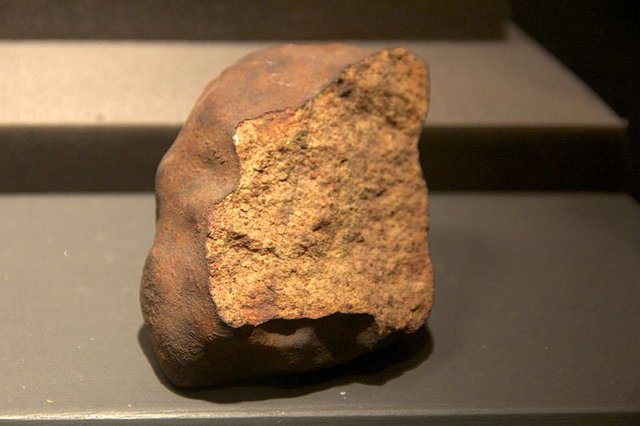
STONY-IRON METEORITES
Stony-iron meteorites represent a rare sort of meteorite that contains both stone and iron.The Stony-Iron meteorites are made of both nickel, iron metals and stone and this cluster includes two large subgroups called the pallasites and themesosiderites.
The Pallasites are characterized by having a large portion of their mass in the form of olivine crystals with these crystals being enclosed by nickel-iron. On the other hand themesosiderites have silicate minerals found commonly in several iron meteorites however the quantity of silicates gets quite high resulting in these meteorites classified as mesosiderites.The mesosiderites are the smaller of the two stony-iron groups, they contain each nickel-iron and silicates and usually show an attractive, high-contrast silver and black matrix when cutting and polished-the seemingly random mixture of inclusions leading to some very striking features. The word mesosiderite comes from the Greek for "half" and "iron," and they are very rare, of the thousands of officially cataloged meteorites, fewer than one hundred are mesosiderites.
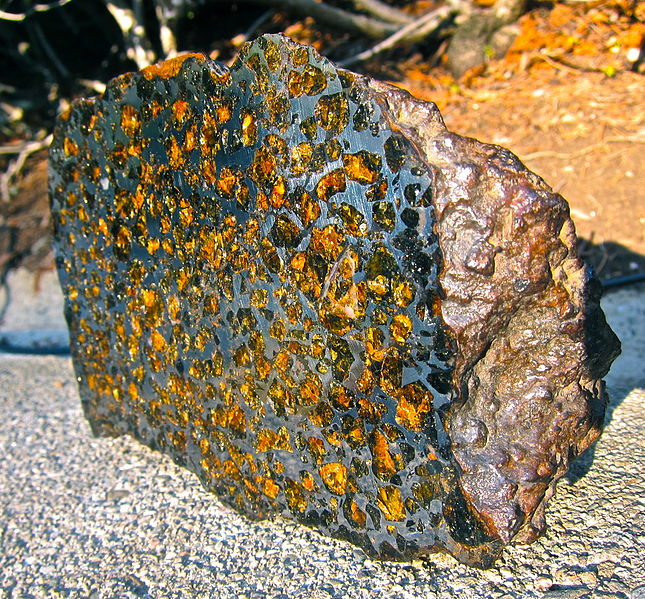
How fast do meteorites fall?
Meteors normally collide into the thermosphere layer of Earth's atmosphere, which is about 50 to 75miles up. If a meteor is moving particularly fast—say, around a whopping 160,000 miles per hour—it can be visible above this band; if a meteor is relatively slow-moving—at around 25,000 miles per hour—it can generally be seen at a lower altitude, the space chunks have to be slow after they enter the atmosphere at evening hours but fast during the morning, when a hurtling meteor comes into contact with the air molecules within the atmosphere, it creates friction and heats up, it will then often explode into a bolide within the atmosphere, causing a
fireball as it falls toward Earth, shortly after a large meteor streaks across the sky, a shock wave follows.

Brief Application of Meteorite
- Meteorites are used as a centerpiece for jewelry designs because they are fashionable and unique.
- Meteorites are used to treat anemia and also to strengthen blood and tissues in the body.
- Meteorites releases trusting powers that allow the wearer to increase his/her confidence level.

REFERENCES
What are Meteorite?
characteristics of Meteorite
The types of Meteorite
The major types of Meteorite
how fast Meteorites falls
IMAGE SOURCES
All images used here are from free sources and eligible for commercial use
Hello @mercyice, this is a interesting area to discuss. I'm personally fascinated by astronomy. I hope to read more of your articles. Kudos!
Thank you so much @temitayo-pelumi
I am really glad you loved this
And surely you will certainly see much more from my end
hey dear!
very nice read i must say, i learnt quite a few things i never knew about meteorites and i just added a wish to my wishlist!
Wow!!.
I am really glad you really loved it
Thank you for stopping by
That was quite some comprehensive posts on meteorite. I guess we earthlings are lucky since no major meteorite had decided to obliterate us. Thanks for sharing.
Hello @greenrun
Thank you very much for stopping by
I am really glad you found information here very useful.
Cheers
Keep steeming ✌️
Sneaky Ninja Attack! You have just been defended with a 14.89% upvote!
I was summoned by ifioklee. I have done their bidding and now I will vanish…
woosh
P.S. If you or anyone you know has been a victim of @grumpycat please know that he has been harming people throughout Sōsharumedia (ソーシャルメディア). Stealing the service that I (and other bots) have provided them and hiding behind a facade of stopping bid bot abuse which he clearly has no interest in.
Sneaky Ninja is a very responsible bot, working directly with steemcleaners, actively pursuing spam and abuse on our platform. If you would like to see what steps Sneaky Ninja has taken to fight bid bot abuse see this post and this post. Also know that I am working daily on other solutions.
If you would like to know my personal take on bid bot abuse and why I do not agree with the 3.5 day rule, see this post
Grumpycat is a villain that must be stopped to protect our freedoms here on steemit!
There is a resistance that has formed to counter his tyranny.
If you would like to take an active role in stopping this menace and helping other victims like yourself...

Learn More Here
I have also summoned my love, Kusari to offer some limited help to victims like you.
See Here